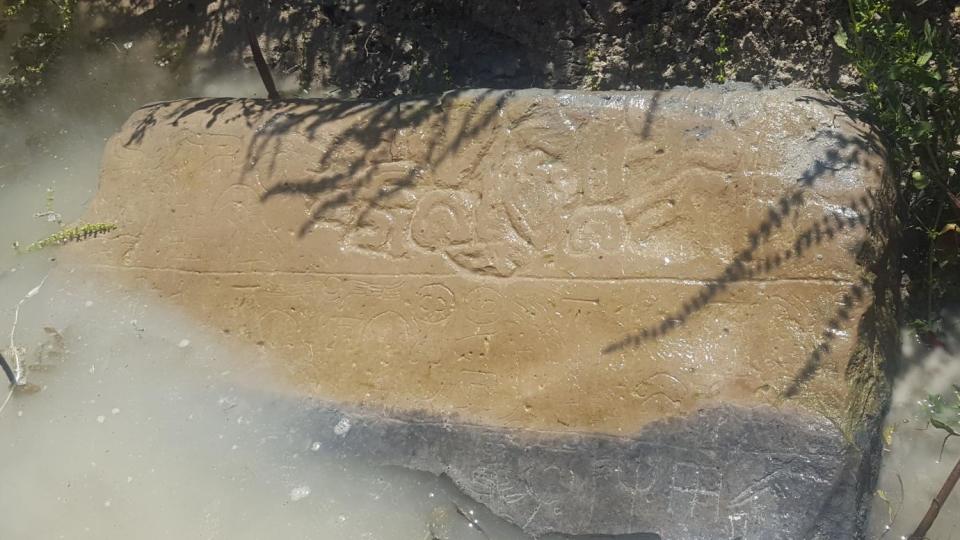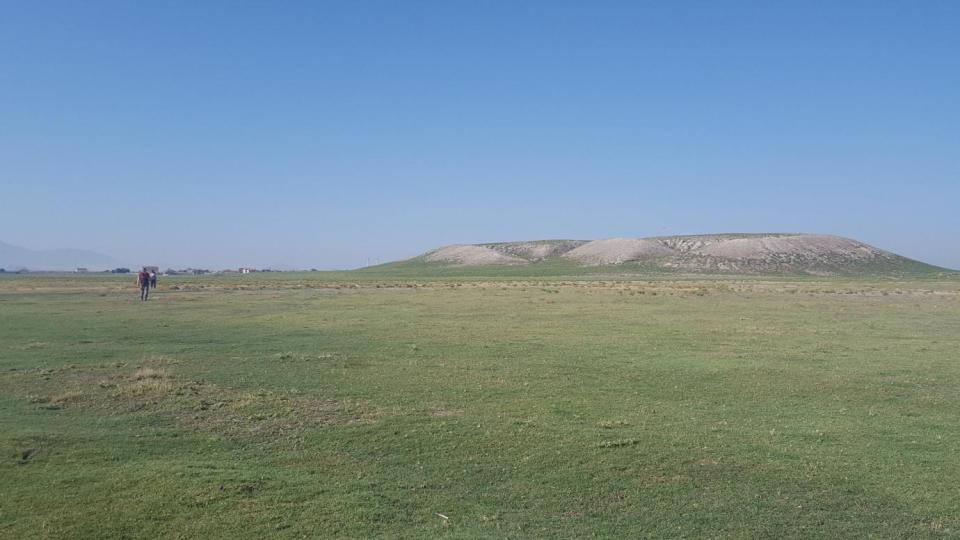Mysterious stone with strange inscriptions leads to discovery of lost kingdom
A mysterious stone with strange inscriptions has led to the discovery of a lost ancient kingdom in Turkey - which may have battled Phrygia, a kingdom once ruled by King Midas.
The as-yet-unnamed ancient kingdom was found after a farmer discovered a huge stone containing a message from an ancient king in an irrigation ditch.
Months later, the farmer told researchers from the University of Chicago, who were nearby investigating Türkmen-Karahöyük, a large Bronze and Iron Age mounded settlement occupied between about 3500 and 100 B.C., about his discovery.
“My colleague Michele Massa and I rushed straight there, and we could see it still sticking out of the water, so we jumped right down into the canal up to our waists wading around,” Assistant Professor James Osborne of the Oriental Institute said.

“Right away it was clear it was ancient, and we recognised the script it was written in: Luwian, the language used in the Bronze and Iron ages in the area.”
The team immediately identified a special hieroglyphic marking that symbolised the message came from a king.
The farmer helped them pull the massively heavy stone out of the irrigation canal with a tractor.
From there it went to the local Turkish museum, where it was cleaned, photographed and readied for translation.
The inscription boasted of defeating Phrygia, the kingdom ruled by King Midas, famous from the mythical story where he developed a golden touch.
Osborne says that the city covered 300 acres, making it one of the largest in Bronze and Iron Age Turkey.

The kingdom is as yet unnamed, but it could reshape the history of the area.
“We had no idea about this kingdom. In a flash, we had profound new information on the Iron Age Middle East,” Mr Osborne said.
The researchers now hope to investigate the area further, and are planning to complete a survey this summer.
“Inside this mound are going to be palaces, monuments, houses. This was a marvellous, incredibly lucky find but it’s just the beginning,” Mr Osborne said.
- Yahoo News UK
Do you have a story tip? Email: newsroomau@yahoonews.com.
You can also follow us on Facebook, Instagram and Twitter and download the Yahoo News app from the App Store or Google Play.



